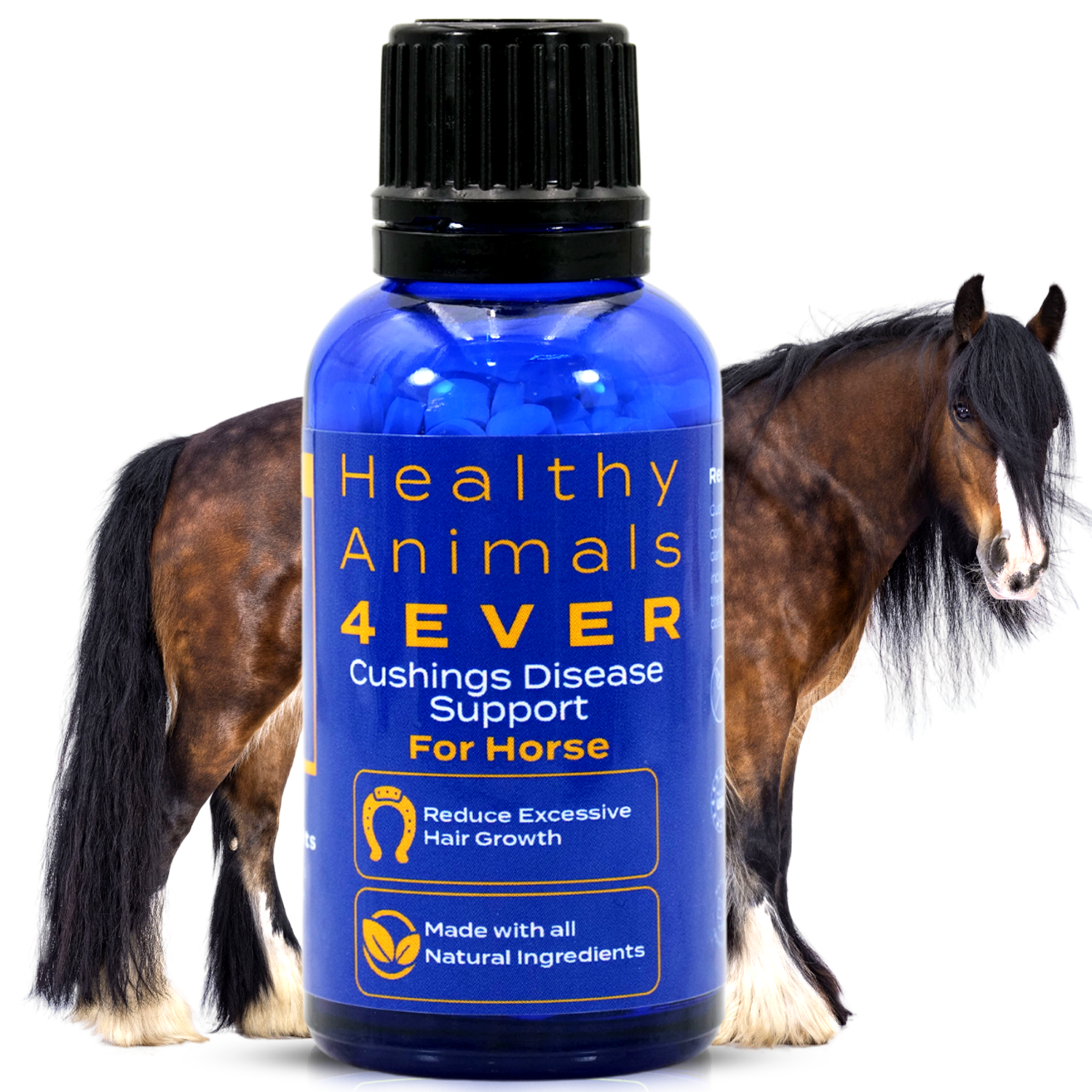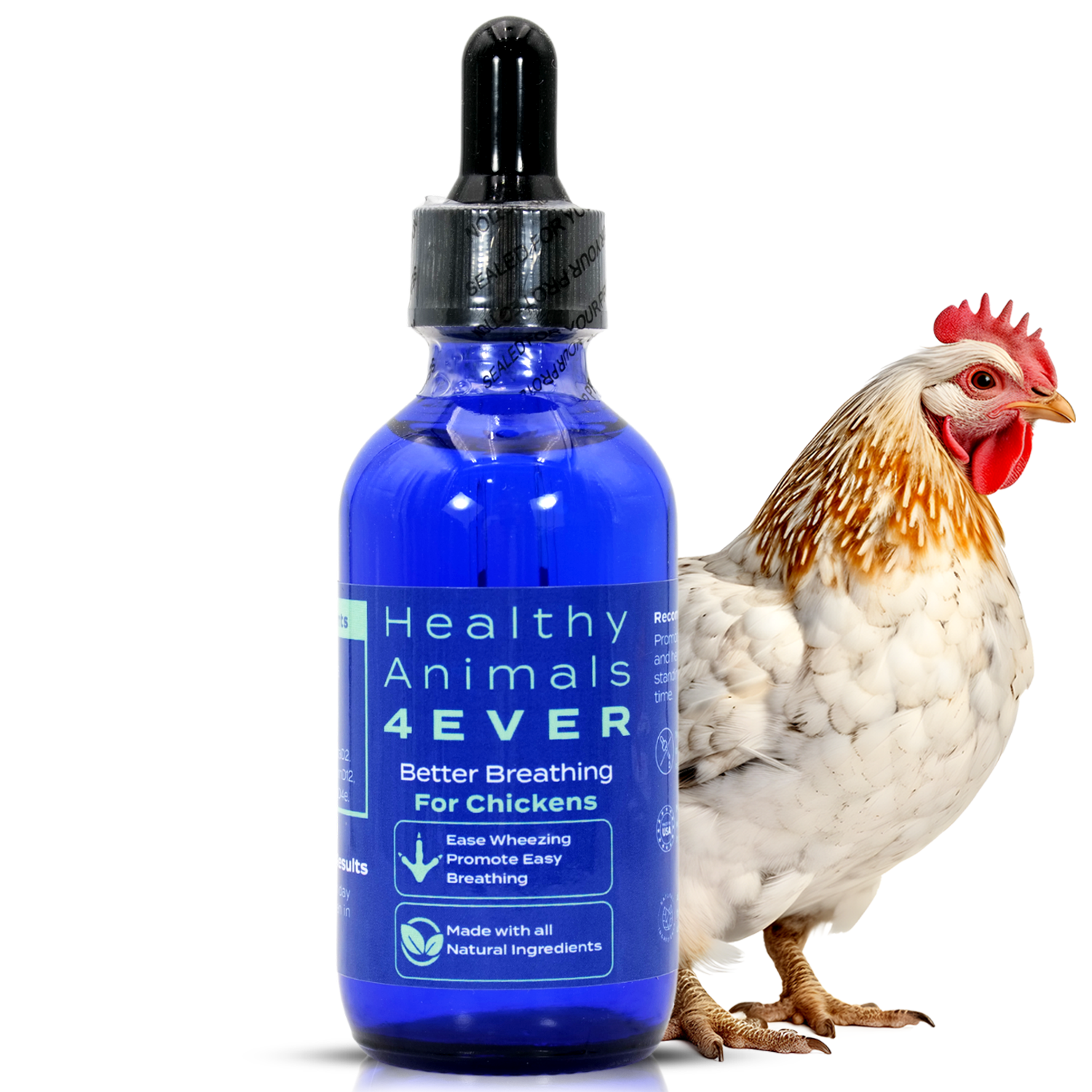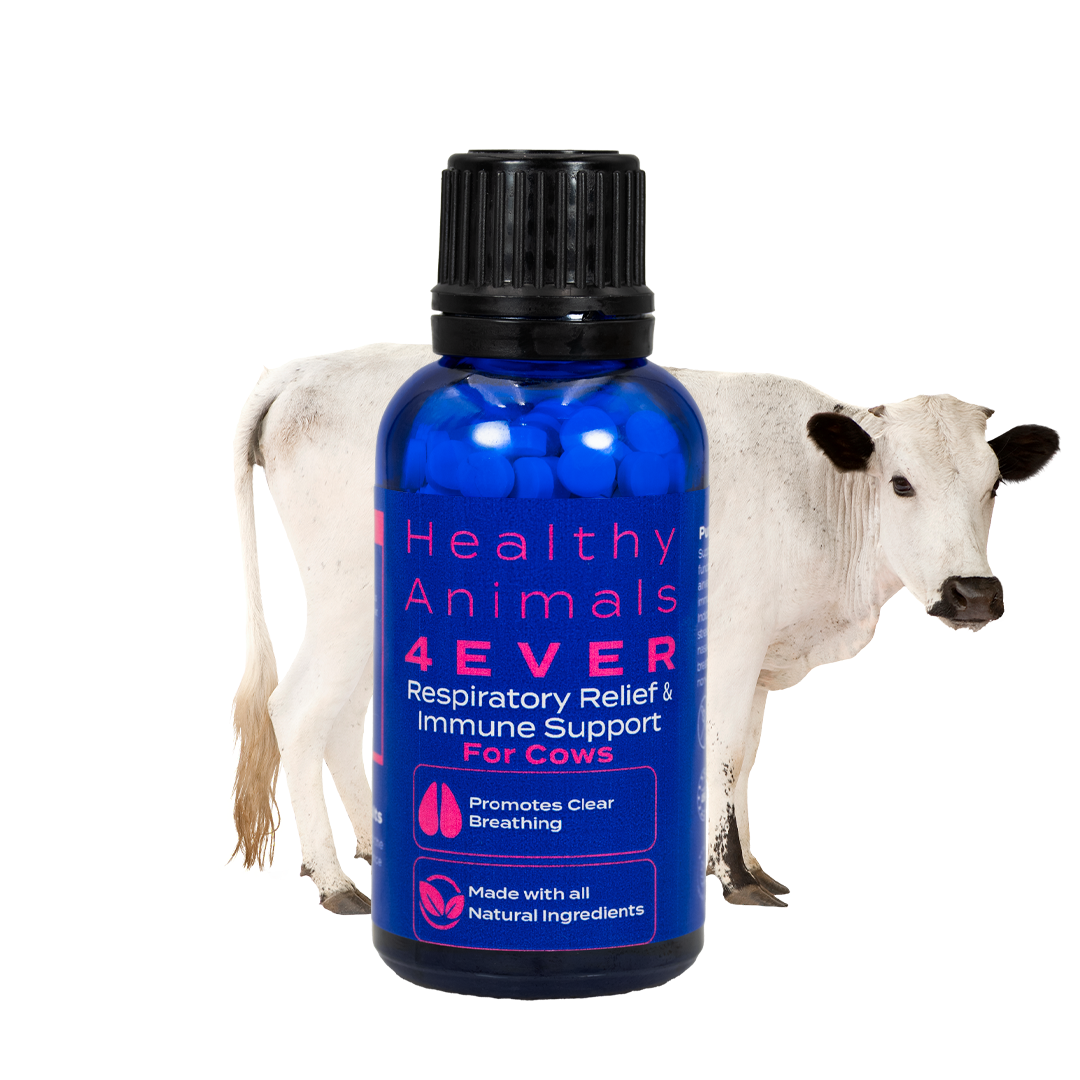Pet Wellness Resolutions 2024: A Guide to Setting Healthy Intentions for a Thriving New Year
As we enter a new year, it's the perfect time for reflection and resolution, not just for ourselves but our beloved pets. This blog will explore the world of wellness resolutions for pets, focusing on incorporating homeopathy and holistic practices into their care routine.
By understanding the principles of homeopathy and embracing holistic approaches, you can provide preventive care, support overall health, and ensure a thriving year ahead for your beloved pets.

More Energy is a natural energy-booster remedy for all dogs. Provides multi-mineral support to promote healing, repair cells, and boost metabolic function. It helps older dogs cope with weakness, fatigue, and other health problems associated with aging.
Understanding Homeopathy for Pets
Homeopathy is a natural and gentle approach to healing that has been used for centuries, and it can be beneficial for our furry friends, too.
Homeopathy believes in the idea of "like cures like." This means that a substance that can cause symptoms in a healthy person can be used in a tiny and safe amount to treat similar symptoms in a sick person—or, in this case, a sick pet.
- How Does Homeopathy Work for Pets?
Imagine your pet's body as a talented orchestra, each instrument representing different functions. Sometimes, the instruments may play out of tune due to illness or imbalance. Homeopathy aims to restore harmony in this orchestra. It stimulates the body's vital force, encouraging it to regain balance and heal itself.
One remarkable aspect of homeopathy is its use of highly diluted substances. Don't let the word "diluted" fool you—these tiny doses can have a powerful effect. The process involves repeatedly diluting a substance and shaking it vigorously, a technique called succussion. This energizes the remedy and enhances its healing properties.
Homeopathy is also known for its personalized approach. Each pet is unique, and homeopathic practitioners consider the individual symptoms and characteristics of the pet before prescribing a remedy. This ensures a tailored and effective treatment plan.

Holistic Practices for Pet Wellness
When it comes to your pet's well-being, a holistic approach involves looking at the bigger picture. Holistic practices consider not just the physical health of your pet but also their mental and emotional well-being.
Let's explore some holistic practices that can contribute to the overall wellness of your furry friend:
- The Foundation: Nutrition
"You are what you eat" applies to pets too. A balanced and nutritious diet is the cornerstone of holistic pet care. Opt for high-quality pet food with natural ingredients, avoiding unnecessary fillers.
- Exercise for a Happy Body and Mind
Just like humans, pets benefit significantly from regular exercise. It's not just about keeping them physically fit; exercise also contributes to mental stimulation and emotional well-being. Whether it's a game of fetch, a walk in the park, or interactive toys, find activities your pet enjoys.
- Mental Stimulation Matters
Pets, especially intelligent breeds, need mental challenges. Puzzle toys, treat dispensers, and interactive games engage their minds and prevent boredom. A stimulated mind contributes to a content and well-adjusted pet, reducing the likelihood of behavioral issues.
- Embracing Natural Therapies
Holistic pet care extends beyond conventional treatments. Explore natural therapies like acupuncture or massage to promote relaxation, improve circulation, and alleviate specific health issues. These gentle practices can enhance your pet's overall sense of well-being.
- A Safe and Comfortable Living Space
Your pet's environment plays a significant role in their wellness. Ensure a safe and comfortable living space by removing potential hazards, providing cozy resting areas, and offering a variety of toys for mental stimulation. A stress-free environment contributes to a happy and healthy pet.

- Holistic Grooming
Grooming is not just about aesthetics—it's essential to holistic pet care. Regular grooming sessions keep your pet clean and allow you to check for any signs of skin issues, lumps, or abnormalities. Use natural grooming products to minimize the use of harsh chemicals.
- Building Strong Connections
Pets are social beings, and their well-being is closely tied to their relationships. Spend quality time bonding with your pet through play, cuddles, and positive reinforcement. Strong connections with their human family contribute to a pet's emotional stability.
- Holistic Veterinary Care
Incorporate holistic veterinary care into your pet's wellness routine. This may involve consultations with holistic vets considering alternative therapies alongside traditional treatments. This integrated approach ensures that your pet receives comprehensive and personalized care.
- The Power of Sleep
Adequate sleep is crucial for your pet's health. Create a comfortable and quiet sleeping space, and ensure your pet gets the recommended hours of rest. Quality sleep contributes to physical recovery and mental well-being.
Anxiety and Over-Reaction from Fear is a natural remedy for calmness and reduced fear in dogs. It helps minimize stress and fear responses. Useful for generalized, separation, social, and environmental anxiety.
In the next chapter, we'll delve into the practical steps of setting wellness goals for your pet, incorporating these holistic practices to ensure a happy and thriving year ahead.
Setting Wellness Goals for Your Pet
Establishing specific objectives ensures your pet enjoys a happy, healthy, and fulfilling life. Let's dive into the practical steps of setting wellness goals and resolutions for your beloved companion.
- Reflect on Current Health
Take a moment to assess your pet's current health status. Consider weight, dental health, energy levels, and medical conditions. This reflection will serve as the foundation for establishing meaningful wellness goals.
- Utilize the SMART Approach
When setting wellness goals, it's beneficial to follow the SMART criteria:
- Specific: Clearly define what you want to achieve. For example, "Help my dog achieve and maintain a healthy weight."
- Measurable: Establish concrete ways to measure progress. In the case of weight management, you can track pounds lost or gained.
- Achievable: Ensure that the goal is realistic and attainable. Setting overly ambitious goals can be discouraging.
- Relevant: Align the goals with your pet's overall well-being. Consider their age, breed, and any existing health conditions.
- Time-Bound: Set a timeframe for achieving the goal. For instance, "Achieve a healthy weight for my cat in the next six months."
Weight Loss provides natural support to reduce overeating in cats. Energy-boosting formula. Promotes healthy elimination of extra body weight.
Examples of Wellness Goals:
Weight Management:
- Specific: Help my dog lose 5 pounds.
- Measurable: Track weight loss progress monthly.
- Achievable: Consult the vet for a realistic weight loss plan.
- Relevant: Improve overall health and reduce the risk of obesity-related issues.
- Time-Bound: Achieve the goal within six months.
Dental Health:
- Specific: Establish a regular dental care routine.
- Measurable: Perform dental check-ups every three months.
- Achievable: Use pet-friendly dental products recommended by the vet.
- Relevant: Prevent dental issues and maintain overall health.
- Time-Bound: Implement the routine starting this month.
Mental Stimulation:
- Specific: Engage in interactive play for at least 15 minutes daily.
- Measurable: Keep a log of daily playtime activities.
- Achievable: Invest in toys that stimulate mental activity.
- Relevant: Enhance mental well-being and prevent boredom.
- Time-Bound: Make daily playtime a habit by the end of the month.

- Incorporate Holistic Practices
Integrate holistic practices into your wellness goals. Consider adding natural treats, incorporating holistic grooming routines, or exploring alternative therapies to enhance your pet's overall health and happiness.
- Regular Check-ins and Adjustments
Wellness goals are not set in stone. Regularly check your pet's progress and be flexible in adjusting goals if needed. Life happens, and sometimes modifications are necessary to ensure the well-being of your furry friend.
- Celebrate Achievements
Celebrate small victories along the way. Whether it's reaching a weight loss milestone, maintaining good dental health, or successfully implementing a new playtime routine—acknowledge and reward yourself and your pet for the achievements.
Better Breath is a natural bad breath remedy for all dogs. Helps with bad breath issues. Promotes mouth & fluid balance and comfort. It may help reduce inflammation.
Preventive Care through Homeopathy
With its gentle and holistic approach, homeopathy can be a valuable ally in preventing common health issues and maintaining your pet's overall vitality.
Homeopathy's philosophy aligns perfectly with the concept of preventive care. By addressing imbalances in the body and supporting the immune system, homeopathic remedies work proactively to prevent the onset of diseases and promote overall health.
- Common Homeopathic Remedies for Preventive Care
- Thuja Occidentalis: Known for preventing and addressing skin issues, this remedy is often recommended for pets prone to skin irritations and allergies.
- Silicea: Useful in supporting the immune system, Silicea can be beneficial for preventing recurrent infections and promoting general well-being.
- Nux Vomica: This remedy may be recommended for pets with a sensitive digestive system, helping to prevent digestive issues and maintaining gastrointestinal health.
- Calcarea Carbonica: Ideal for pets with a tendency to gain weight, Calcarea Carbonica can be part of a preventive approach to manage weight and metabolic balance.
- Arsenicum Album: Often used for preventing and managing issues related to the respiratory system, Arsenicum Album can support respiratory health in pets.
Better Breathing Respiratory Support provides lung support for cats. Helpful in fighting the infection to stop coughing at its source. Useful in cases of asthma and other breathing difficulties.
Homeopathic remedies are safe for pets when used correctly. They are non-toxic and generally free from side effects, making them a gentle option for various conditions.
Integrating homeopathy into your pet's routine doesn't have to be complicated. You can administer remedies in various forms, such as pellets, liquid dilutions, or even as part of their water. Consistency is essential, and preventive care through homeopathy becomes a seamless part of your pet's daily life.

Nutritional Considerations for Holistic Pet Care
A natural and balanced diet contributes to a pet’s physical health. It also plays a crucial role in their energy levels, coat condition, and mental clarity.
Dogs and cats have unique nutritional requirements, and their diets should ideally balance proteins, fats, carbohydrates, vitamins, and minerals. Natural and whole-food sources are often preferred over heavily processed options.
- High-Quality Pet Food
Opt for high-quality pet food that prioritizes natural and recognizable ingredients. Read labels to ensure that the primary ingredients are meat-based proteins, and avoid foods with excessive fillers, artificial additives, or preservatives.
- Raw and Fresh Food Options
Consider incorporating raw or fresh food into your pet's diet. This could include raw meat, bones, and vegetables. These options mimic the natural diet of their wild counterparts, providing a range of essential nutrients in a more bioavailable form.
- Breed and Age Considerations
Different breeds and age groups have unique nutritional requirements. Large breeds may benefit from diets supporting joint health, while kittens and puppies require nutrient-rich diets for growth.

- Homemade Pet Food
Preparing homemade pet food can be rewarding for those who prefer a hands-on approach. However, ensuring the recipes are balanced and meet your pet's nutritional needs is crucial.
- Avoiding Harmful Foods
Certain foods that are safe for humans can be harmful to pets. Onions, garlic, chocolate, caffeine, and alcohol are just some foods that should be strictly avoided. Familiarize yourself with a comprehensive list of foods that can be toxic to pets.
- Hydration is Key
Proper hydration is often overlooked but is just as crucial as a balanced diet. Ensure your pet has access to clean and fresh water at all times. Proper hydration supports various bodily functions and contributes to healthy skin and coat.
All Digestive provides natural digestive support for dogs. Helps with stomach upset, diarrhea, and gastritis. It aids in restoring digestive balance and your pet's comfort.
Physical Exercise and Mental Stimulation for a Thriving Pet
Regular physical exercise is essential for pets of all ages and breeds. It helps prevent obesity, improves cardiovascular health, enhances muscle tone, and provides an outlet for excess energy. Engaging in activities that get your pet moving is critical to holistic care.
Mental stimulation is equally essential for your pet's well-being. Engaging their minds prevents boredom, reduces stress, and can curb destructive behaviors. Provide activities that challenge them cognitively, such as puzzle toys, treat dispensers and interactive games.
- Tailored Exercise for Different Pets
Different pets have varying exercise needs. While some breeds may thrive on vigorous outdoor activities, others may prefer gentler exercises. Tailor your pet's exercise routine to their breed, age, and individual preferences.
- Outdoor Adventures
Take advantage of the great outdoors for physical exercise. Daily walks, hikes, or trips to a nearby park can provide an excellent opportunity for your pet to explore, socialize, and get their muscles working. Ensure you use a suitable leash or harness for safety.
- Indoor Exercise Options
Even if you have limited outdoor space, there are plenty of indoor exercises to keep your pet active. Interactive toys, laser pointers for cats, and indoor obstacle courses can provide physical and mental stimulation. Play sessions can be as beneficial as a walk around the block.

- Consistent Routine
Consistency is critical when it comes to physical exercise. Establish a routine that includes daily activities to keep your pet's body in motion. A consistent exercise schedule also helps prevent behavioral issues by providing an outlet for excess energy.
- Training Sessions
Training isn't just about obedience; it's an excellent way to mentally engage your pet. Teach them new tricks, reinforce existing commands, or participate in agility training. Positive reinforcement during training sessions strengthens the bond between you and your pet.
- Rotate Toys and Activities
Keep things interesting for your pet by rotating toys and activities. Introduce new toys regularly to prevent boredom and vary the types of exercises to challenge different aspects of their physical and mental abilities.
- Incorporate Playtime into Daily Life
Incorporate playtime into your daily routine. Whether it's a quick game of fetch, a short training session, or some interactive play with toys, these moments strengthen the bond between you and your pet while keeping them active and engaged.
More Energy is a natural energy-booster remedy for all cats. Provides multi-mineral support to promote healing, repair cells, and boost metabolic function. It helps older cats cope with weakness, fatigue, and other health problems associated with aging.
Creating a Holistic Living Environment for Your Pet
A holistic living space addresses not only the physical comfort of your pet but also their emotional and mental needs. Let’s explore the elements of creating a holistic living environment that promotes a sense of security, contentment, and thriving for your furry companion:
- Comfortable and Safe Spaces
Provide cozy and secure areas where your pet can rest and retreat when needed. Consider their natural behaviors and preferences; some pets may enjoy elevated perches, while others prefer enclosed spaces. Ensuring their environment feels safe contributes to their emotional well-being.
- Natural Light and Fresh Air
Just like humans, pets benefit from natural light and fresh air exposure. Arrange your pet's living space to allow access to sunlight during the day. Consider opening windows or providing proper ventilation to ensure a constant fresh air flow, contributing to a healthy indoor environment.
- Thoughtful Placement of Essentials
Strategically place food and water bowls, litter boxes, and bedding to create a convenient and accessible layout. Avoid placing essential items near noisy appliances or high-traffic areas to reduce stress and ensure a calm atmosphere for your pet.

- Safe Exploration Opportunities
Pets, especially curious ones, thrive on exploration. Create safe spaces where they can investigate and discover without encountering potential hazards. Securely store household items that could be harmful, and use pet-friendly plants to add a touch of nature to their living space.
- Enrichment Activities
Enrich your pet's environment with activities that engage their senses and natural instincts. Puzzle toys, scratching posts for cats, and interactive dog feeders can provide mental stimulation. Rotate these items regularly to keep their environment dynamic and exciting.
- Temperature Control
Maintain a comfortable temperature in your home, especially where your pet spends the most time. Avoid exposing them to extreme temperatures, and provide cozy spots for relaxation during colder months. Adequate temperature control supports their physical comfort.
The Bottom Line
Remember, the journey toward your pet's well-being is a continuous effort. By incorporating natural and holistic approaches, setting achievable goals, and providing a loving and enriching environment, you're actively contributing to your furry friend's happy and healthy life. And you're not just enriching their lives; you're forging a deep and enduring bond.
Here's to a year filled with joy, vitality, and well-being for you and your beloved pet. Happy 2024!














